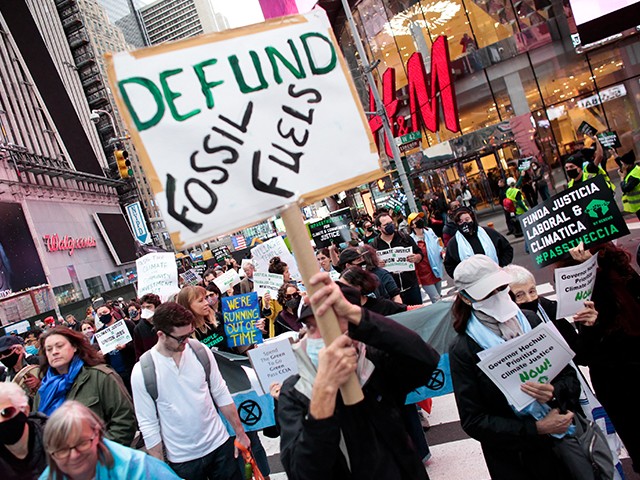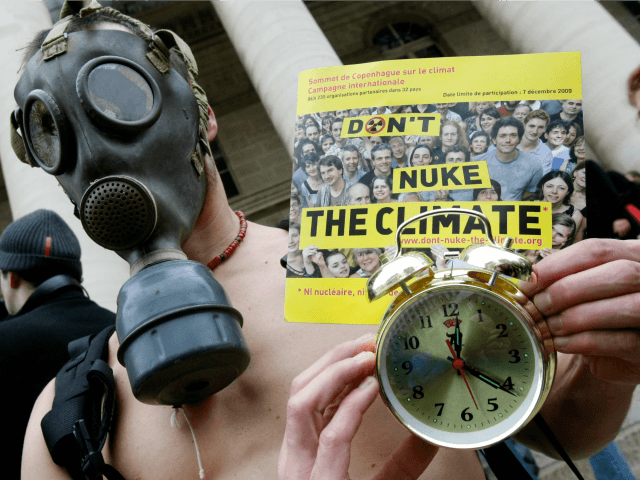A simulation based on apocalyptic images designed to highlight “the disastrous effects of climate change” had the opposite impact on those who viewed it and failed to shift attitudes, a study from Singapore Management University details.
The work was based on Hong Kong citizens being shown a life-like 3D depiction of a climate-induced six-metre storm surge on their city.
It sought to use virtual simulations of future extreme weather events to communicate climate change risk.
According to the findings, perceptions of the risk from climate-related threats actually reduced after those in the study group watched the simulation.
Reactions ranged from outright denial about the so-called climate crisis to the belief that they, personally, would be OK whatever happened.
Others said they were less worried because they were already taking steps to protect the environment despite the global demands of climate activists.
WATCH: Climate Activist Worried About Starvation Splashes Mashed Potatoes on Monet Painting
LetzteGeneration via StoryfulAmong the 1,500 respondents in the survey, overall perceptions of the risk to their way of life from climate change actually reduced after seeing the simulation. In order to understand these negative findings, the researchers asked people to explain their feelings.
Of those who gave detailed answers, more than a third said they simply did not believe that human-induced climate change was real despite endless public entreaties from sources as varied as the Intergovernmental Panel on Climate Change (IPCC) to Pope Francis.

Activists attend the Climate Justice March in New York City on November 13, 2021. (KENA BETANCUR/AFP via Getty Images)
Another group said the likelihood of a storm event used as an example in the 3D simulation was too far in the future to worry about now, while others said it would not affect them as they lived in mountainous areas away from the coast and some said they felt helpless to do anything.
“Our findings suggest that, on average, exposure to our simulation led to a decrease in risk perceptions of climate change and had a negative… effect on individual mitigation behaviour,” the researchers said, raising “a fundamental cautionary issue on the use of 3D visualisations to communicate risk to the general public.”
WATCH: “System Change, Not Climate Change” Green Activists Call for “Socialist Revolution”
One of the report’s authors, Dr Terry van Gevelt, told Eco-Business.com the simulation should have provided “the wake-up call needed to modify individual behaviour and support costly climate adaptation and mitigation measures.
Instead the result was exactly the opposite.
“Unfortunately, our results suggest that ‘seeing is not believing’, especially for climate sceptics,” he added.

COMMENTS
Please let us know if you're having issues with commenting.